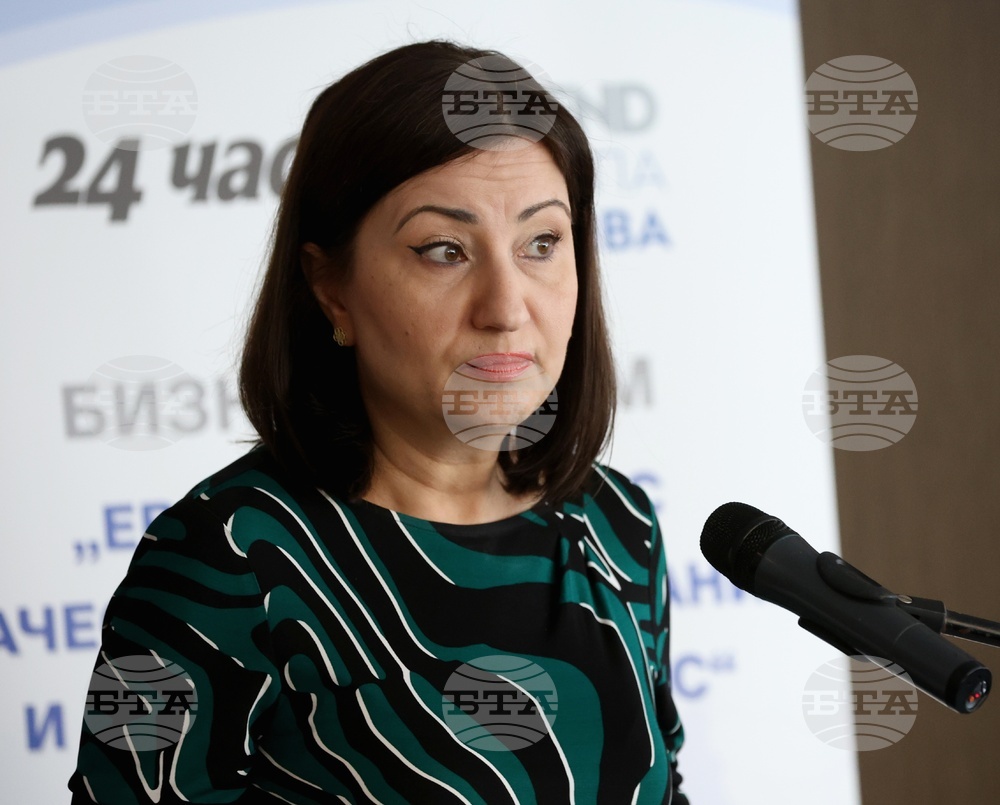site.btaUPDATED EU Commissioner Ivanova Says Education, Young People's Future Some of Most Relevant Topics for Bulgaria, Europe


Addressing Thursday's forum on quality education and responsible business, Iliana Ivanova, the European Commissioner for Innovation, Research, Culture, Education and Youth, said the education and the future of young people are some of the most relevant topics for Bulgaria and Europe. She said: "It is clear today that our path to prosperity and security goes through education. Europe is the fruit of knowledge and the spirit, and they are its main resource. They have given it everything to which millions continue to aspire, and this resource comes from our teachers, schools, scientists and universities, our researchers, innovators and research centres."
The forum is organized by the 24 Chasa daily.
"Our economies and communities are built on education, it is the foundation of Europe's competitiveness, and the labour and skills shortage is one of the most significant obstacles to it. That is why we have created a European Education Area - for quality education accessible to all. In my view, it starts with investing in the teaching profession. If we look at the latest statistics, we will see that nearly half of teachers in Bulgaria are over 50 years old, more than 30% are over 55, meaning that in the next decade at least half of the teachers in Bulgaria are likely to retire," Ivanova said.
She noted that in recent years the government has made efforts to make the teaching profession more attractive through higher salaries and better opportunities for young people to get a teacher education. Still, if teachers are to have the required skills and motivation, they should be offered opportunities for continuous personal and career development. To this end, the European Commission has launched the Erasmus+ Teacher Academies, which bring together teacher training institutions across the EU. Bulgaria participates in seven of the 27 academies, Ivanova said.
She also talked about the fine, strong link between education, training and business, the role of the EU Member States and their commitment. In the 2021-2027 programming period, more than EUR 786 million from the European Social Fund are earmarked for measures aimed to improve the quality and affordability of Bulgarian education and training, as well as their link with the labour market.
The other element, the National Recovery and Resilience Plan, which needs to be fast-tracked, provides for the renovation of schools, the construction of new university campuses and secondary school laboratories across Bulgaria. "More than EUR 75 million have been earmarked for the renovation and construction of new dormitories alone, and I hope that this delay will be made up for. Therefore, it is really important that a political consensus is reached so that we do not miss the opportunity to modernize the education infrastructure with this significant financial support," Ivanova said.
She noted the importance of cooperation among European institutions, governments, businesses and academia as a way to ensure that the education system produces skills valued in the labour market. The European Commission has adopted a recommendation which expands opportunities for school and university students and teachers to travel and study in other EU countries.
Ivanova also talked about the proposal for a European diploma a project developed with the participation of EU universities, including Bulgaria. It would allow the creation of joint programmes with other higher education institutions across Europe. "Students will be able to study in several countries, enrich their knowledge and skills, and get wider recognition of their qualifications - without the current red-tape hurdles and the time it takes for such a degree to be recognized if it is earned from several universities."
She explained the point of the European diploma: "Imagine a new generation of professionals with European training and experience. Universities will benefit from a simplified framework to pool their resources and capacity, employers will have a choice of highly qualified, multilingual graduates with specialized knowledge and skills. Education is a field of national competence and the introduction of the European diploma is entirely voluntary," said Commissioner lliana Ivanova. She is confident that governments, education institutions and students will all see the benefits of such diplomas.
/YV/
news.modal.header
news.modal.text